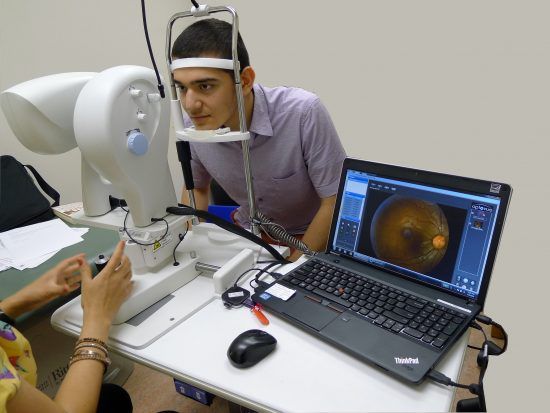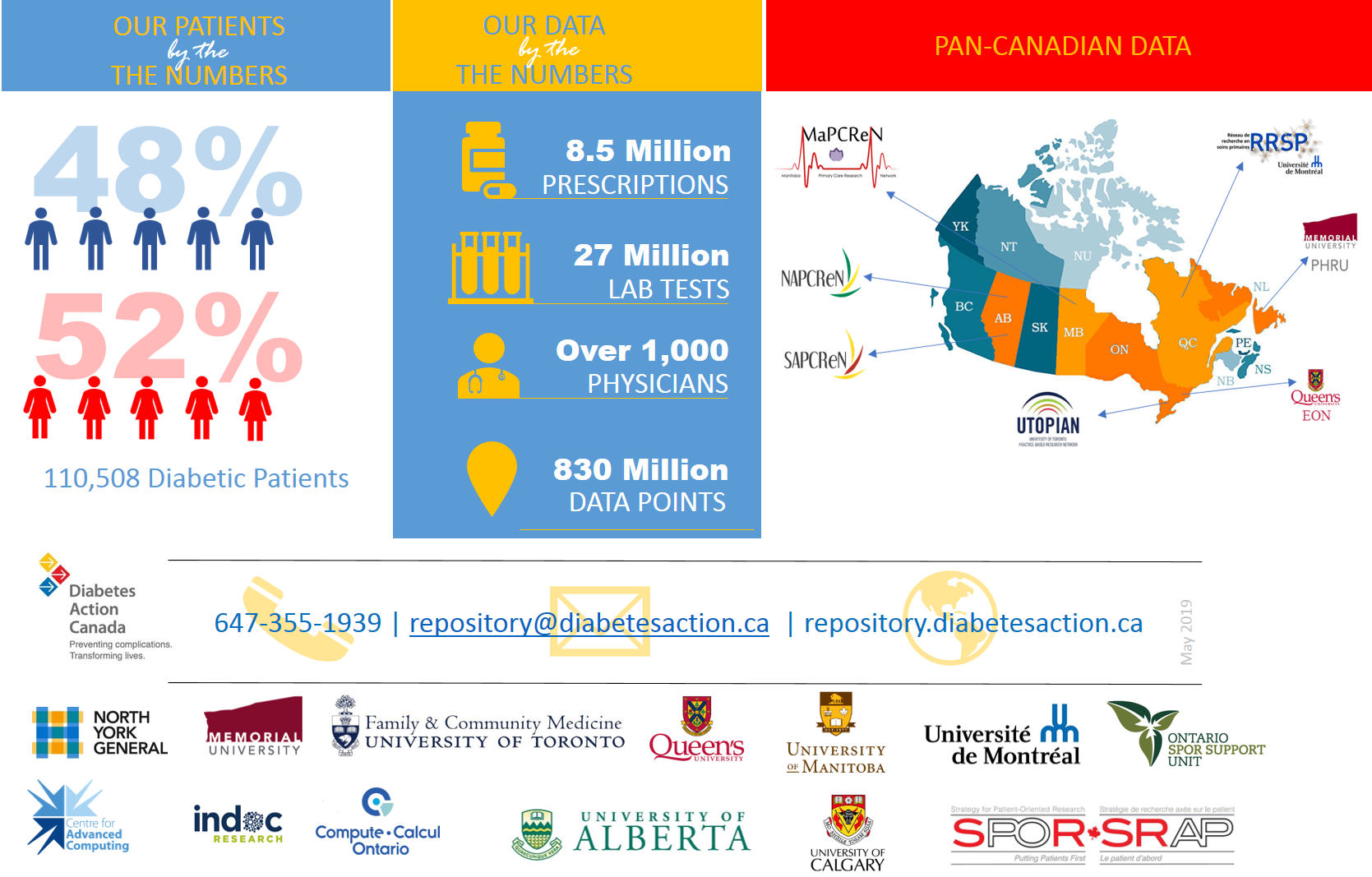Author: Linxi Mytkolli
Patient-Oriented Research in the Spotlight for Diabetes Awareness Month
November is Diabetes Awareness Month, which is an opportunity for Diabetes Action Canada to highlight the organization’s work in developing patient- and research-informed health care delivery that is accessible to all and designed to prevent diabetes and its related complications.
Diabetes Action Canada is part of the Canadian Institutes for Health Research Strategic Patient-Oriented Research (SPOR) program dedicated to fully integrating patients into the health interventions research process.
“Researchers and health care professionals develop programs or strategies aimed at helping those living with diabetes, using all of their professional skills and knowledge. But, often, they fail to consider the realities of a day-to-day life with diabetes, which in turn leads to less impact for the project,” says Dr. Gary Lewis, Scientific Co-Lead at Diabetes Action Canada. “By incorporating the lived experience and opinions of patients who assist us in co-designing our research programs, we are able to develop solutions that meet the needs of the patient, address major barriers in access to health care, and improve the success of implementation.”
Diabetes Action Canada has developed multiple programs with their patient partners that demonstrate the value of this critically important collaboration in developing successful health care interventions.
“From increased access to screening for diabetic retinopathy (eye damage), to better support programs for seniors with diabetes, to improving the resilience and wellness of Indigenous youth to prevent diabetes, we have established understanding of how to better meet the needs of persons living with diabetes.” says Dr. Catharine Whiteside, Executive Director of Diabetes Action Canada. “Our mission is to improve patient experience, population outcomes and health professional experience, and to reduce health care costs related to diabetes.”
Diabetes Action Canada has so far supported more than 40 research projects, including:
- The creation of the first National Diabetes Repository, a secure platform that contains anonymous information from more than 110,000 individuals with diabetes from several provinces. This repository allows researchers access to information that is used to investigate diabetes-related disease risk factors such as high blood pressure and high cholesterol, and design interventions to improve outcomes. There is no identifying information in the data, which is managed securely, and use is approved by a team of patient partners and health professionals who have set out specific guidelines for when and how this information can be used for research.
- The ongoing development of a tele-retina screening program, which is designed to increase access to eye exams for people living with diabetes. This approach is proven effective and cost-effective for identifying previously undiagnosed, vision-threatening diabetes-related eye disease in high-risk populations who have been shown to have lower rates of screening. Early detection of diabetic retinopathy and treatment would eliminate diabetes as the number one cause of blindness in working age Canadians.
- Research led by Diabetes Action Canada members showed an increase in diabetes-related amputations in Ontario over the last ten years. One of the most feared complications of diabetes is foot ulcers related to loss of nerve function and peripheral vascular disease, that could in some cases lead to limb amputation. Persons with diabetes want interventions that remove barriers and better support their day-to-day needs, including regular access to chiropodists to more effectively prevent and treat foot ulcers. The Diabetes Action Canada funded program makes this access possible—working with experts and patients to reduce amputation risk.
“Diabetes Action Canada has established a collaborative community with patient partners working directly with researchers and health professionals” says Whiteside. “We anticipate outcomes that will transform the health trajectory for all Canadians with diabetes at risk for complications.”
Visit Diabetes Action Canada’s website and follow along on Twitter to learn more about these programs during Diabetes Awareness Month.
For more information, contact:
Krista Lamb, Communications Director
kristalamb@gmail.com
647-403-5627
About Diabetes Action Canada
Diabetes Action Canada is a pan-Canadian research organization, launched in 2016, funded by the Canadian Institutes of Health Research’s Strategic Patient-Oriented Research program, non-profit organizations (e.g. Diabetes Canada, JDRF), and private sponsors, over 5 years. We focus on bringing patients, their caregivers and researchers together to identify the health concerns of those living with diabetes and to co-create research projects that address these concerns. We partner and collaborate with university research teams across Canada, non-profit organizations such as JDRF, and provincial governments to plan, execute and evaluate these research projects so we can improve patient outcomes and experiences.








